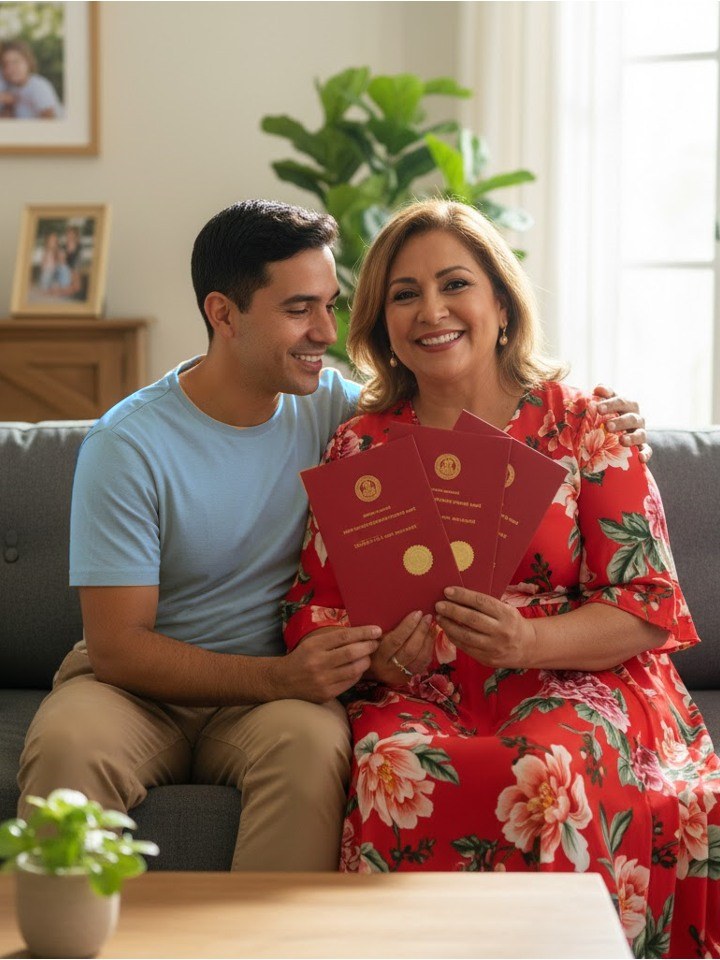My name is Ethan Miller. I was 20 years old, a sophomore studying economics in Seattle. My life was simple — lectures, part-time shifts at a coffee shop, and basketball with friends on weekends. I thought I knew what my future looked like, until the night I met her.
Her name was Eleanor Hayes — sixty years old, elegant, composed, the former owner of the high-end restaurant chain Hayes Dining Group. We met at a charity gala organized by my student club. She wore a gray silk dress and carried herself with a quiet dignity that made people lower their voices when she passed. Yet behind her smile, I saw loneliness.
When we first spoke, she asked, “Do you believe in karma, young man?” I laughed and said I wasn’t sure. I didn’t know that one question would change the course of my life.
Despite our forty-year age gap, we grew close quickly. She told me she had been widowed for years, that her husband died in an accident, and that she never had children. I was drawn to her — her wisdom, her humor, and the sadness she carried like perfume. She made me feel seen in a way no one else ever had.
Three months later, I proposed to her in the courtyard of her old restaurant on a rainy evening. “I don’t care about age,” I said. “I only know I want to be with you.”
My family was furious. My mother cried, my father shouted that I’d lost my mind. “A sixty-year-old woman, Ethan? She could be your mother!” My friends mocked me, saying I was chasing her money. But I knew it wasn’t about that. Around her, I felt calm, understood, loved.
We married quietly, in her Portland mansion, under a stormy sky. Only a few friends and business associates attended. That night, after everyone left, she walked out of the bathroom in an ivory silk nightgown. Her silver hair hung loose, her beauty striking under the dim light. She sat beside me, placed three real estate files and a set of car keys in my hands, and said, “Ethan, if you’ve chosen this path, you must know the truth. I didn’t marry you just for companionship. I need an heir.”
Her words struck like thunder. “An heir?” I repeated. She nodded slowly. “If I die, my relatives will tear apart everything I built. I want you to inherit everything — but there’s one condition. Tonight, you must truly become my husband, not just in name.”
I froze. Love tangled with fear in my chest. Was this a test? A transaction? I reached for her hand, unsure, and she stopped me. Her voice dropped to a whisper. “Wait, Ethan. Before you go any further, you need to know the truth about my husband’s death.”
She opened a drawer and took out a thick envelope. Inside were photos of a car crash, police reports, and a single handwritten note: It wasn’t an accident.
I looked up, trembling. “What are you saying?”
Her eyes filled with tears. “He didn’t die by accident. He was poisoned. And I know who did it.”
The room fell silent. The ticking clock sounded deafening. She turned away, her voice cold and calm. “It was me.”
My heart stopped. I stared at her — the woman I had just married, the woman I loved. “You… killed him?”
Her gaze softened, almost pleading. “He beat me for twenty years. I was nothing to him — a servant in my own home. When he decided to leave me for another woman, I broke. I put sleeping pills in his coffee, just to make him stop for one night. But he drove after drinking it. He crashed. I didn’t mean for him to die, but I didn’t stop it either.”
Her confession hung heavy in the air. “I’ve spent the rest of my life trying to make up for that night — building charities, helping others, trying to be good. But the guilt never leaves. I didn’t marry you to buy forgiveness. I married you because I wanted to die with someone who could still see the good in me.”
I couldn’t speak. I just sat there, tears burning my eyes.
Then she whispered something that cut deeper than anything before. “I’m dying, Ethan. Pancreatic cancer. I have less than a year left. I wanted someone who would carry what’s left of me — not my money, but my memory.”
She handed me a folder filled with legal documents: titles, shares, property deeds — all in my name. “Promise me one thing,” she said. “Never tell anyone the truth. Let Eleanor Hayes die a good woman.”
I cried silently. Not for the wealth, but for the weight of the secret she was handing me. I realized that love isn’t about purity — it’s about forgiveness.
Two years later, Eleanor passed away on an autumn morning, surrounded by golden leaves on the porch of our Portland home. I held her hand until the last moment. Her final words were a whisper against my palm: “Ethan, you are the forgiveness I never found.”
After her death, the headlines blazed: “Business Icon Leaves Fortune to Young Husband.” People sneered, others envied, but no one knew the truth. I sold her entire empire and used the money to start the Eleanor Foundation — an organization for women escaping abusive homes.
Every year, on the anniversary of her death, I return to that same house. I sit at the piano she loved, play “Moonlight Sonata,” and listen to the wind whisper through the curtains.
And sometimes, in that quiet, I swear I can still hear her voice — calm, proud, and free at last.
“You did a good job, Ethan.”
